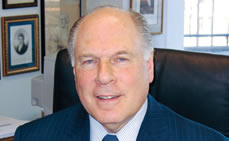The Key to the Success for American Education
By Alfred Posamentier, Ph.D.
 All the concern about the new Common Core Curriculum Standards and the standardized tests our students are taking is overshadowing another controversial issue in education: assessments for future teachers.
All the concern about the new Common Core Curriculum Standards and the standardized tests our students are taking is overshadowing another controversial issue in education: assessments for future teachers.
Having outstanding teachers is the key to the success for American education. As the national discussion focuses on how we can best train future teachers, 35 states have adopted the Education Teacher Performance Assessment (edTPA) as a way to prepare teachers. But as of May 1, New York joins only one other—Washington—that will use it to evaluate student teachers for certification.
The edTPA requires teacher candidates to submit at least three lesson plans covering three days of classes, sample tests, reports about their students and instructional goals, and a 20-minute video, which will be graded by education professionals hired by Pearson. Though it is well-intentioned, the edTPA, sadly, contains too many flaws that not only significantly damage the validity of this assessment, they have the potential for deleterious effects on candidates and, consequently, our future teaching force.
What could be bad about an assessment that observes a teacher in the classroom, evaluates his or her reasoning, and comments about significant aspects of the teaching performance? Consider how these principles are applied:
• The Candidates submit their own video and commentary (unproctored) – with absolutely no security that it this is, in fact, their own work.
• How do we know that this instrument can truly predict who will be an effective teacher? Who determines a passing score?
• The assessment may not take into account optimal teaching arrangements for varying subject areas. When is a small group arrangement better than a whole group lesson, and vice versa? Furthermore, who determines what constitutes optimal teaching?
• The assessment leaves too much to chance, such as the nature and timing of the class being taught. By its very importance for the candidate’s future, it may overwhelm the student-teaching experience.
We already know from decades of research that student teaching—the portion of a future teacher’s training when he or she interns in a real classroom setting—is the single most important part of teacher preparation. It’s where everything learned in courses must be put into action coherently, with real students, colleagues and parents. Adding the pressure of an additional high-stakes performance assessment (to the other numerous standardized tests our teacher candidates must take) in the student-teaching semester means that all the important hands-on learning—from practical logistics to theoretical understandings—is overshadowed by the burdens of the test.
This assessment doesn’t provide any more information about a candidate than faculty already has, or that can be gleaned from program assessments and ongoing observations of student teaching. Despite some who find this assessment a good indicator of future performance, evaluations based on one lesson provide no more transparency about performance and classroom readiness, and perhaps far fewer insights. Developers of the assessment argue that the edTPA is designed to take context into account. But there is still a chance for considerable bias in the scoring process. There are already discussions about changing the scoring so that scorers become specialized—one scorer grades for student participation, another looks at classroom questioning, and a third, visual representations—but that could mean the entire process loses its integrity. How can you isolate these tasks from one another without considering how the pieces fit together?
Although, I agree with Commissioner John B. King Jr., who continues to support this exam, that raising the competence of future teachers is of paramount importance to our educational system, I would hope that as we move forward to build truly strong teachers we would “cleanup” these flaws before they damage the teacher candidates’ future, and possibly our education system through a possibly inaccurate assessment instrument. #
